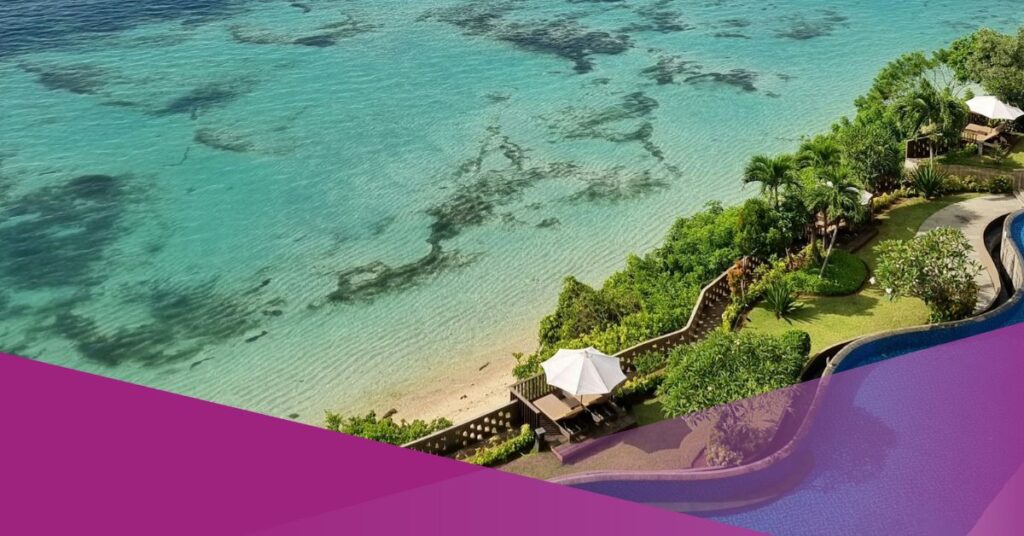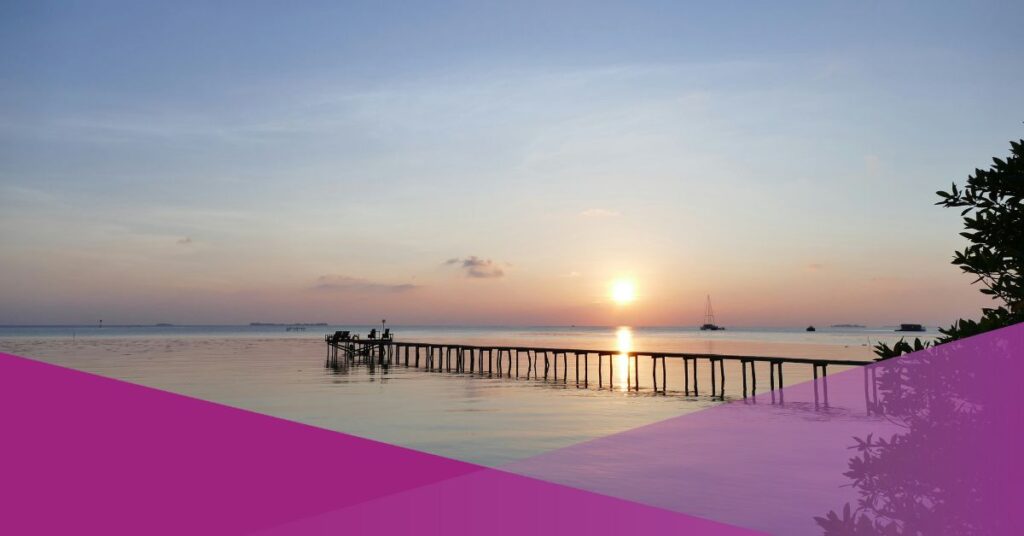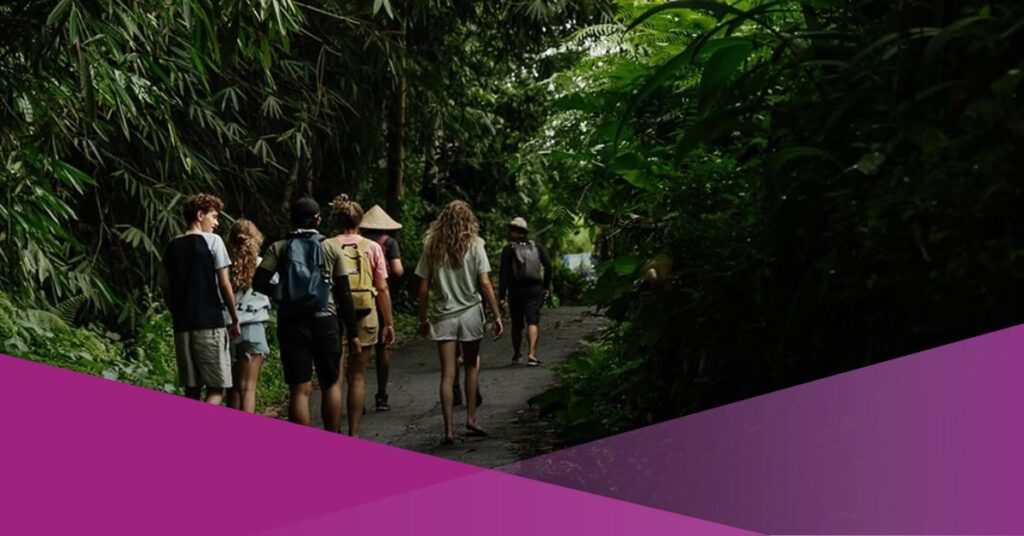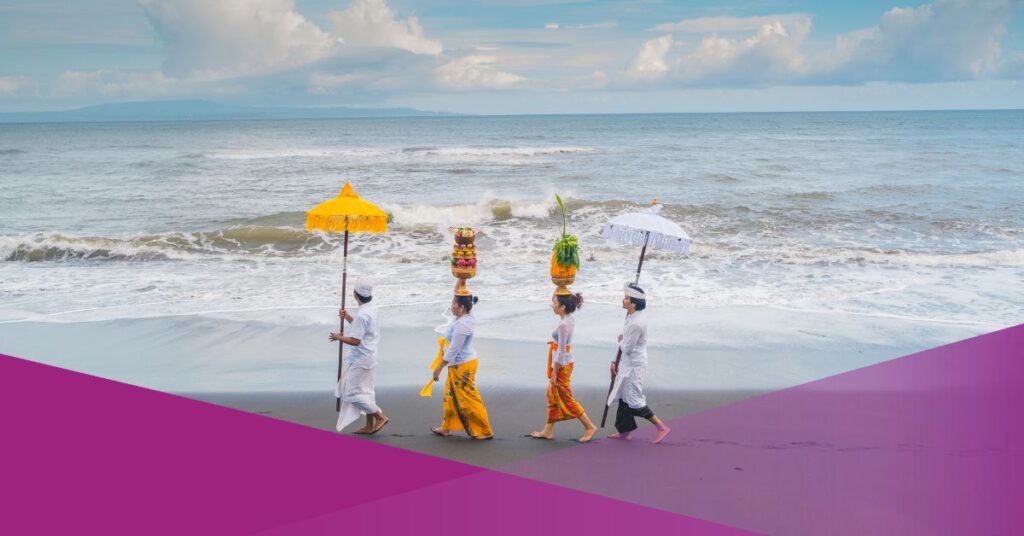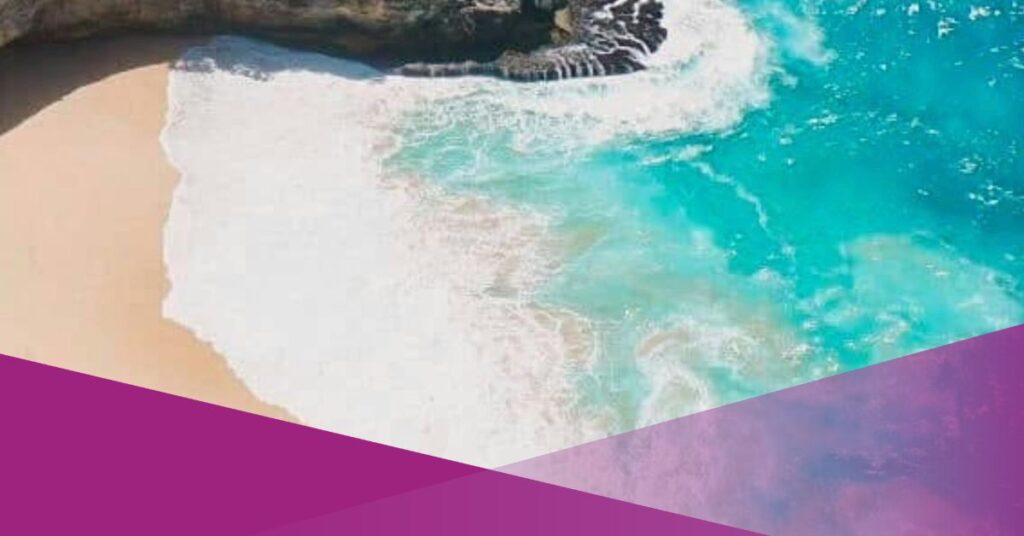The beach has long been a favourite destination for those looking to unwind and distance themselves from the noise of urban life.
More than simply a place for leisure, the beach offers a variety of benefits for physical and mental well-being. Spending time at the beach has been linked to improved mood and a greater sense of calm.
Walking along the coast and breathing in the fresh sea air has also been scientifically proven to promote brain health and combat cognitive decline. The presence of Bali ocean that contain ions in the ocean breeze contributes to mental clarity and overall rejuvenation.
Bali Ocean Breeze and Sea Air: Top Beaches in Bali for Relaxation in 2025
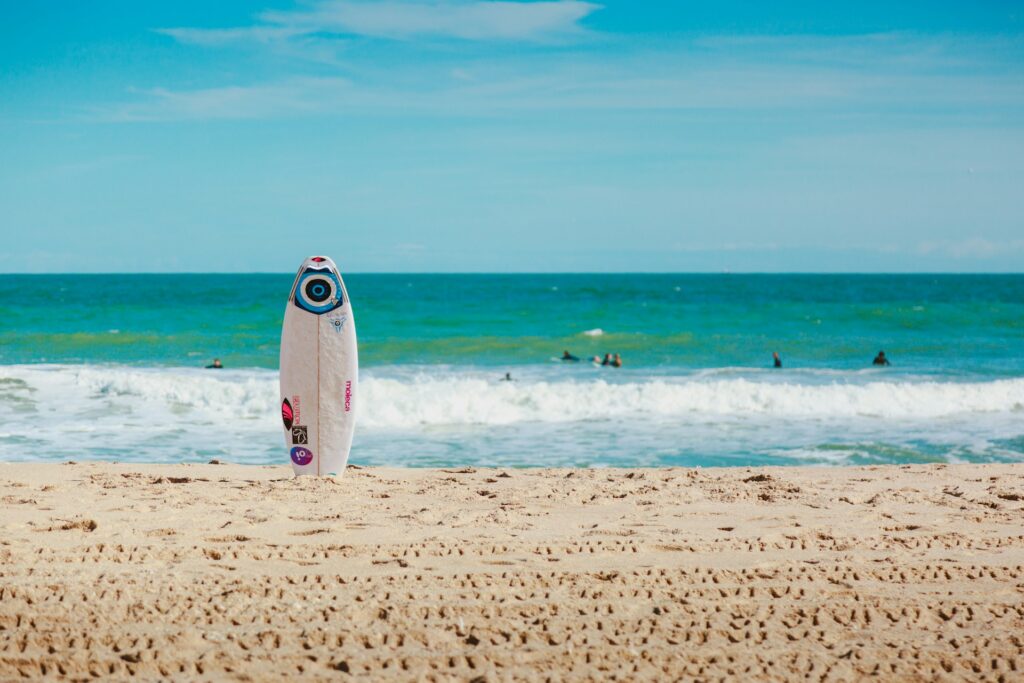
Research suggests that negative ions, which are naturally present in sea air, can enhance serotonin levels in the brain. Serotonin plays a crucial role in mood regulation, helping to alleviate symptoms of depression and elevate one’s emotional state. Moreover, sea air aids in clearing the lungs, making breathing feel easier and more refreshing.
Neuroscientist Rachel Taylor references a study that found that inhaling ocean air allows the body to absorb ions that can enhance the brain’s electrical performance by up to 47 percent.
This process can foster the development of new neural connections, which supports cognitive function and clearer thinking.
As we age, the brain’s neural pathways naturally decline, but we are still capable of forming new connections throughout our lives, particularly through new experiences and social interaction.
Mental agility is further influenced by environmental factors such as pollution, nutrition, and hydration.
According to Taylor, who works with the Maudsley Biomedical Research Centre, negative ions play a significant role in reducing inflammation and eliminating free radicals.
These ions also facilitate better communication between neurons by increasing the brain’s electrical responsiveness.
The circulation and water mass characteristics of the Bali Sea are largely influenced by the movement of water from the Flores Sea toward the Java Sea in the north of Indonesia. Oceanographically, the Bali Sea plays a significant role in the Indonesian Throughflow, a major current that transports water from the Pacific Ocean to the Indian Ocean. This flow primarily passes through the Bali Strait and the Lombok Strait.
Discover the Health Benefits of the Bali Ocean Breeze
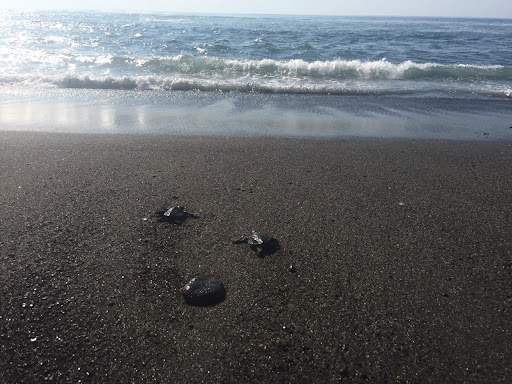
Mineral Content
Sea air contains minerals such as sodium, magnesium, and potassium, which support respiratory health. These minerals help loosen mucus, ease inflammation in the respiratory system, and enhance overall lung performance.
Negative Ions
Ocean waves release negative ions that are known to have positive effects on human health. These ions can increase oxygen intake, lower stress levels, and promote more restful sleep.
Air Humidity
The naturally higher humidity at the beach helps thin the mucus in the airways, making it easier to expel when coughing and providing relief from congestion.
Pollution-Free Environment
Beaches, especially those in less urbanised areas, tend to have lower levels of pollution. This contributes to cleaner, healthier air, which is beneficial for respiratory function.
Best Beaches in Bali to Visit in 2025
1. Kelingking Beach
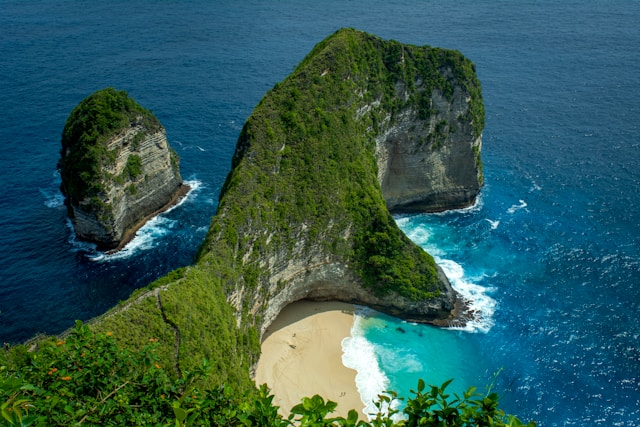
Kelingking Beach earned a spot on TripAdvisor’s list of the Best Beaches in the World for 2024, ranking 25th globally and the highest in Southeast Asia. In 2023, it had also made the 16th spot. Its growing international recognition has not diminished the beach’s natural charm.
To reach the beach, visitors must descend a steep cliff path with a gradient of 70–80 degrees. Though physically demanding, the panoramic coastal views from above and along the path offer an impressive reward.
2. Kuta Beach
Kuta Beach is among Bali’s most well-known destinations, often seen as the face of island of Bali tourism. Located in the southern region of the island, it is famous for its consistent surf, making it a popular spot for surfers of all skill levels.
The beach is particularly popular for sunset watching, drawing visitors every evening. Around the area, one can find numerous restaurants, bars, and local markets, including a night market where traditional Balinese cuisine and souvenirs are readily available.
3. Blue Lagoon Beach
Situated in the Manggis District of Karangasem, Blue Lagoon Beach is notable for its clear water and suitability for snorkelling. The underwater scenery includes coral reefs and diverse marine life. This is also a popular dive site in Bali.
Visitors can expect to encounter tropical fish, including clownfish, during snorkelling sessions. It’s a calm and accessible location that’s ideal for families or those seeking a quieter retreat.
4. Padang Padang Beach
Padang Padang Beach gained international attention through the film ‘Eat, Pray, Love’ starring Julia Roberts. The beach features white sand and coral reefs, nestled within a cove that enhances its secluded feel.
Located in South Kuta, it is about 35 minutes from Ngurah Rai Airport. It is accessible through a narrow pathway and staircase, offering a scenic entry to the shoreline.
5. Seminyak Beach
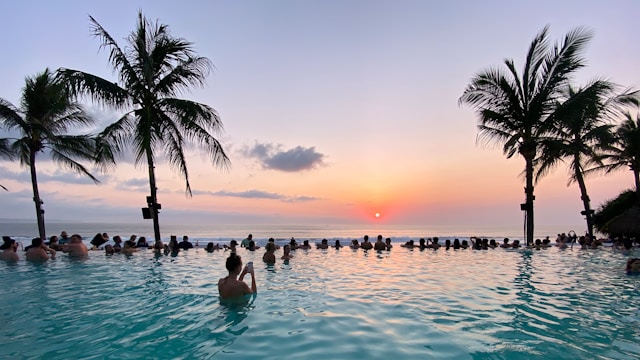
Seminyak Beach lies just north of Kuta and provides a more serene and exclusive atmosphere. With fewer crowds, it’s a great location for a peaceful walk or quiet reflection.
The surrounding area is known for upscale shopping and dining, including beachfront restaurants that offer views of the sunset during dinner service. Seminyak Village and Seminyak Square are also close by for boutique shopping.
6. Bingin Beach
Bingin Beach is tucked behind a cliff and offers a quiet alternative to Bali’s more crowded beaches. The beach features white sand and clear water, making it ideal for relaxation.
Reaching the beach requires descending a set of steps along a cliff, which can be challenging but manageable. Once there, the peaceful setting makes it an excellent place for a slower, more contemplative day.
7. Melasti Beach
Melasti Beach is located in South Kuta, below Pandawa Beach. It offers a scenic drive with cultural elements like Balinese statues and dramatic limestone cliffs along the route.
The beach is known for being a photogenic spot, with several areas perfect for photography. It takes around 30 minutes to reach Ngurah Rai Airport.
8. Dreamland Beach
Dreamland Beach offers a blend of white sand and clear blue waters, with opportunities for both sunbathing and surfing. It is situated on the western coast of Bali.
Due to its position, it also provides ideal conditions for watching the sunset. Dreamland is a suitable location for those looking to surf or relax.
9. Balangan Beach
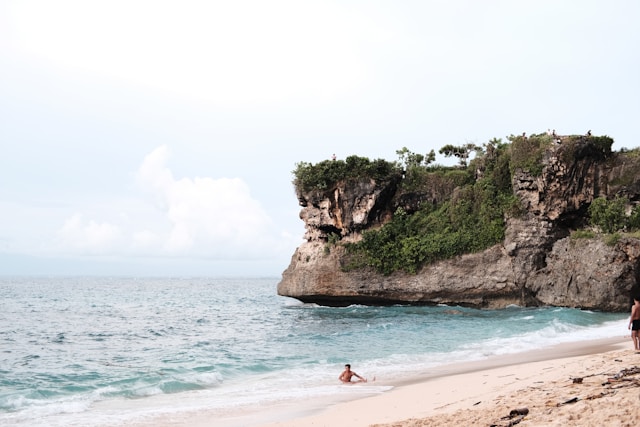
Balangan Beach is a known destination for surfers due to its reliable waves. It is located in the southern region of Bali and is generally less crowded.
There are local warungs along the beach providing food and refreshments. The peaceful setting makes it a good place to unwind, whether or not you are surfing.
10. Pandawa Beach
Pandawa Beach is hidden behind limestone cliffs and is accessible via a road carved through the stone. Its location makes it a quiet and picturesque destination.
The beach features white sand and clear waters, making it suitable for swimming and snorkelling. Small caves along the beach add to its charm.
11. Canggu Beach (Echo Beach)
Canggu Beach is located in North Kuta and is popular with international visitors. It offers nightlife options and beach clubs that keep the area lively well into the evening.
The beach also has high surf, drawing many surfers. Despite its popularity, it retains areas where visitors can relax during the day.
12. Green Bowl Beach
Located in Nusa Dua, Green Bowl Beach requires a long staircase to descend. Once at the bottom, visitors are greeted by a calm atmosphere and turquoise waters.
Its relative isolation makes it ideal for those wanting a quiet place. The white sand and clear conditions create an inviting environment for a restful day.
13. Nusa Penida Beach
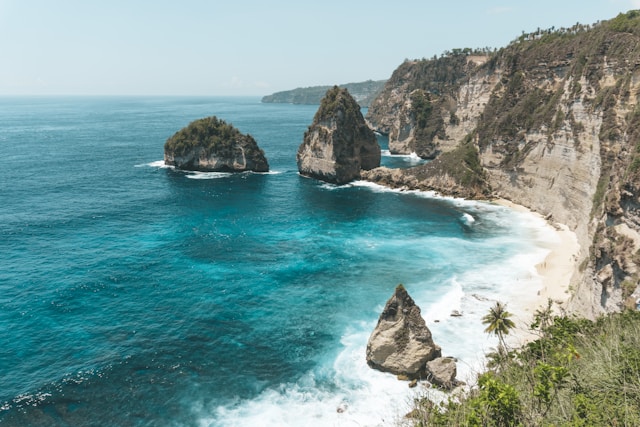
Nusa Penida lies east of Nusa Lembongan and is accessed by fast boat from Sanur. Though more popular than Lembongan, it retains natural charm and scenic beaches.
Key beaches include Kelingking Beach, Diamond Beach, and Atuh Beach. These locations offer a combination of dramatic cliff views and coastal serenity.
14. Medewi Beach
Medewi Beach, in Jembrana Regency, is noted for its black sand and strong waves. It is a prime destination for surfers and those who appreciate rugged beachscapes.
Because of its remote location, the beach is less developed and remains peaceful. It’s an ideal choice for visitors seeking to escape tourist-heavy areas.
15. Virgin Beach
Virgin Beach, also known as White Sand Beach, is located in Karangasem near Bukit Asah. The beach’s natural surroundings and clean water appeal to those wanting a more natural experience.
The sea is calm and suitable for swimming. Visitors can also observe fishing boats and coconut trees lining the beach, adding to its traditional island atmosphere.
The Bali Sea, located north of Bali Island, is part of the Flores Sea and lies within a complex oceanic basin shaped by tectonic and volcanic activity. The sea forms the south-west part of the Flores Sea, and the Madura Strait opens into it from the west. This body of water is relatively shallow compared to the deeper surrounding seas, with an average depth of around 1,600 meters.
As a part of the Pacific Ring of Fire, the region is marked by significant geological activity, including frequent earthquakes and the presence of numerous volcanoes. The seafloor is characterized by ridges and trenches formed by shifting tectonic plates, contributing to the dynamic nature of the marine environment.
Stretching from the Sape Strait in the east to the bays and coastal regions in the west and north of Bali, the Bali Sea plays a crucial role in regional marine circulation. It connects with the Java Sea to the north and is influenced by the Indonesian Throughflow, which channels warm Pacific Ocean waters toward the Indian Ocean.
The basin’s position in the southwest of the Flores Sea makes it a transitional area, both geographically and oceanographically. The surrounding volcanic islands not only shape the coastline but also impact nutrient levels and biodiversity in the sea, supporting vibrant marine ecosystems and making the region a hotspot for underwater exploration.
cover: Photo by Julio Samudra on Unsplash
